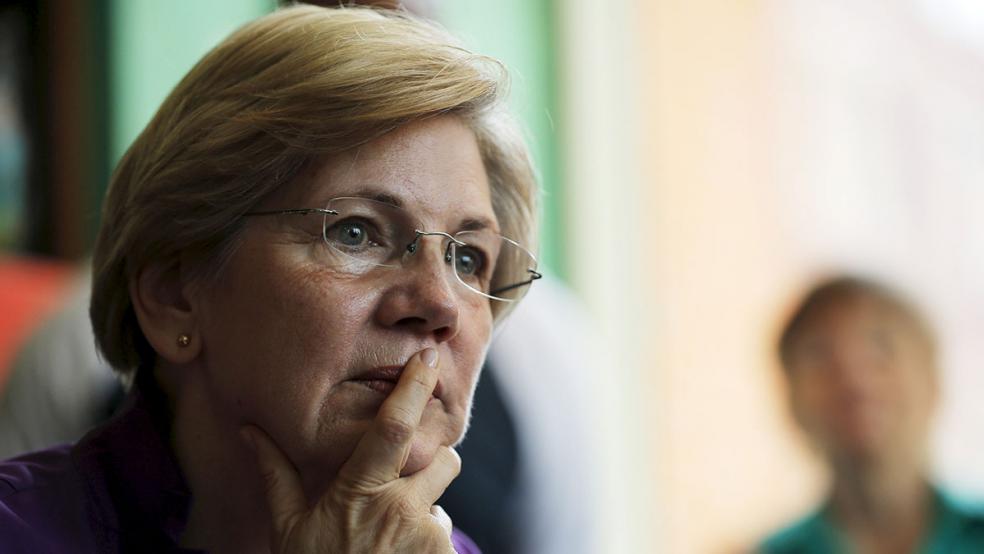Faced with the possibility of across-the-board defeats on in five states voting on Tuesday, Sen. Bernie Sanders has floated an idea that could provide his lagging White House bid a bit of extra mojo near the end of the primary season: naming Elizabeth Warren as his running mate.
Appearing on MSNBC’s “Morning Joe,” Sanders noted that “it’s a little bit early to be speculating” on who might be his vice president if he somehow won the Democratic Party nomination, before offering up the Massachusetts senator as a potential candidate.
Related: Super Tuesday No. 4: The End of the Line for Bernie Sanders?
“Elizabeth Warren, I think, has been a real champion in standing up for working families, taking on Wall Street,’’ according to Sanders.
“I think the women of this country, the people of this country understand that it would be a great idea to have a woman as vice president. It’s something I would give serious thought to,” he added. “There are fantastic women who have been active in all kinds of fights who I think would make great vice presidential candidates.”
It’s unclear how much of a bounce Sanders would get if he named Warren, a darling of the Left and the focus of numerous efforts to draft her as presidential contender, to his ticket. The duo appeal to almost identical demographics and many of the volunteers and organizers that made up the Draft Warren movement have drifted into the Sanders camp.
Related: Sanders to Clinton: Here’s What My Support Will Cost You
However, having Warren, who hasn’t endorsed anyone in the Democratic primary, as his potential running mate could help Sanders with female voters, a group Hillary Clinton has consistently won.
Such talk, months before the Democratic National Convention, comes as Sanders faces an increasingly narrow path to the party’s nomination — a reality he acknowledged Tuesday.
Whereas earlier in the campaign he would reject questions about what it would take to support Clinton if she gets the 2,383 delegates needed to become the party’s standard-bearer, Sanders has started to outline how the former secretary of state could earn his backing.
But on Monday, Sanders, who maintains he will continue his campaign until the final primary in California on June 7, would not commit to rallying his supporters for Clinton.
Related: In a Season of Nicknames, ‘Lucky Don’ Seems Right for Trump
It is incumbent upon Clinton to reach out to the roughly 7 million voters who have backed the Sanders campaign, he said during an MSNBC town hall.
His evasiveness clearly annoyed Clinton, who noted that she didn’t wait to endorse Barack Obama in 2008 after she withdrew from the presidential race.
“Then-Senator Obama and I ran a really hard race; it was so much closer than the race right now between me and Senator Sanders,” Clinton said.
“We got to the end in June, and I did not put down conditions. I didn’t say, ‘You know what, if Senator Obama does X, Y and Z, maybe I’ll support him. I said, ‘I am supporting Senator Obama because no matter what our differences might be, they pale in comparison to the differences between us and the Republicans. That’s what I did.”
At stake on Tuesday are 384 delegates in primaries in Connecticut, Delaware, Maryland, Pennsylvania and Rhode Island. Factoring in superdelegates, Clinton’s lead stands at 1,944 to 1,192 for Sanders, according to an Associated Press count. That puts her at around 81 percent of the delegates needed to win the nomination.
If Sanders is swept in all five states, no strategy, including naming Warren as his running mate, will help him catch, let alone overtake, Clinton.





